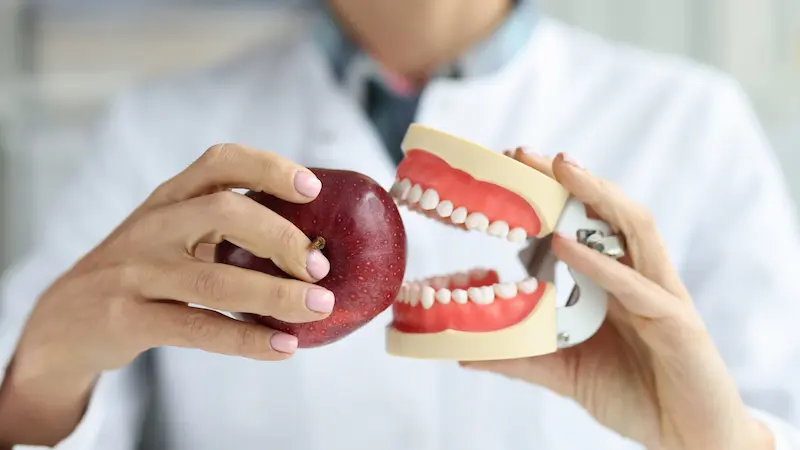Maintaining Oral Health After Tooth Loss with Dental Implants
Tooth loss can significantly affect not only an individual's appearance but also their overall oral health. When a tooth is lost, the surrounding teeth can shift, leading to misalignment, increased plaque buildup, and potential periodontal issues. This article will discuss how dental implants can maintain oral health after tooth loss and provide practical guidance for individuals considering this restorative option.

Understanding Dental Implants
Dental implants are artificial tooth roots, typically made from titanium, that are surgically embedded into the jawbone. They serve as a sturdy foundation for replacement teeth, which can be in the form of crowns, bridges, or dentures. Compared to other tooth replacement options, dental implants offer a more permanent solution and can significantly improve functional and aesthetic outcomes.
Benefits of Dental Implants in Oral Health
- Prevent Bone Loss: Tooth loss can lead to bone resorption, where the jawbone diminishes due to the absence of stimulation from the tooth root. Dental implants stimulate the bone, helping to maintain its density and structure.
- Preservation of Surrounding Teeth: Traditional bridges require the alteration of adjacent teeth for support. In contrast, dental implants do not require modification of adjacent healthy teeth, preserving their integrity and function.
- Improved Oral Hygiene: With implants, maintaining oral hygiene becomes easier. Unlike removable dentures, which can trap food and bacteria, dental implants function like natural teeth, allowing thorough brushing and flossing.
- Enhanced Functional Restorations: Dental implants allow individuals to eat and speak with confidence. They restore nearly full biting force and can improve overall quality of life by reducing discomfort and embarrassment associated with missing teeth.
- Aesthetic Benefits: Implants are designed to look and feel like natural teeth, providing a seamless, aesthetically pleasing solution that can boost self-esteem and confidence.
Caring for Dental Implants
Proper care of dental implants is crucial for maintaining oral health post-implantation. Here are some best practices:
- Maintain Excellent Oral Hygiene: Brush and floss daily, using non-abrasive products. An antibacterial mouthwash can further help in reducing plaque and maintaining gum health.
- Regular Dental Visits: Routine check-ups, typically every six months, are essential. A dentist can monitor the health of the implant and surrounding gums, ensuring early detection of any problems.
- Avoid Hard Foods: Although implants are sturdy, it is wise to avoid excessively hard foods that could exert undue stress on the prosthetic or the implant.
- Stop Smoking: Smoking is detrimental to oral health and can impede the healing process post-surgery. If possible, quitting or reducing smoking is advised.
- Wear a Mouthguard: For individuals with bruxism (teeth grinding), a mouthguard can protect both the implants and remaining teeth from damage.
FAQs
Q1: How long do dental implants last?
A1: With proper care, dental implants can last 10 to 15 years or longer. Regular monitoring and good oral hygiene can significantly extend their lifespan.
Q2: Are dental implants painful?
A2: Most patients report that they experience minimal discomfort during and after the procedure, which can be managed with prescribed pain relief medication.
Q3: Who is a good candidate for dental implants?
A3: Ideal candidates are individuals with sufficient jawbone structure, healthy gums, and non-smokers or those willing to quit. However, a thorough evaluation by a dental professional is necessary.
Q4: Can dental implants get cavities?
A4: While dental implants do not decay like natural teeth, the surrounding gum tissue can develop infections or other issues if not properly cared for.
Conclusion
Dental implants provide a reliable solution for tooth loss and significantly contribute to the maintenance of oral health. By preventing bone loss, preserving adjacent teeth, improving oral hygiene, enhancing functionality, and offering aesthetic benefits, they present a comprehensive approach to dental restoration. As with any medical treatment, consultations with qualified dental professionals are crucial for individualized care and successful outcomes.
For more information on dental implants and oral health care, you can visit reputable dental websites such as American Dental Association and WebMD.
-

A Guide to Cost-Efficient Small Electric Cars for Seniors
-

Mastering Debt Consolidation: Boost Your Credit Score and Manage Interest Rates
-

Your Guide to Loans, Credit Checks, and Interest Rates
-

Affordable Independent Living: Finding the Right Senior Housing
-

Guide to Senior Living Apartments: Affordable and Comfortable Environments









